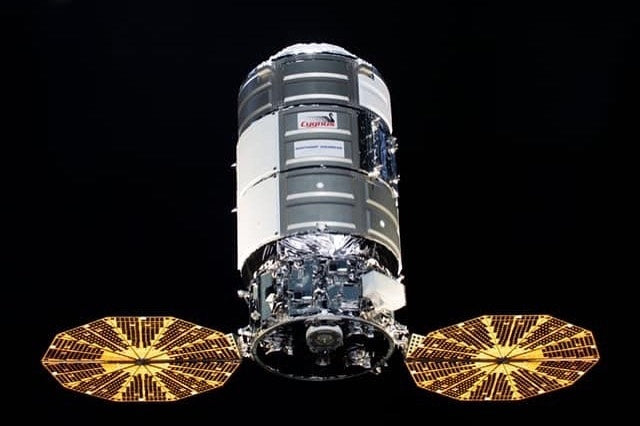
Spoof or Jam? Cheap Satellites Can Be Hacked, Says Expert.
Share
With SpaceX thrusting countless young satellites into the murky womb of our atmosphere, fears have arisen on the security of such devices and the implications therein...
Amazon - and the world's richest potential bond villain, Jef Bezos - plans on entering the space race with a fleet of their own satellites to combat their significant carbon footprint.
A critical Achilles heel in the race to the bottom of satellite pricing has been the shortcuts taken in cybersecurity as well as the lack of global standards regulations.
Who can be first or who can do it biggest has come a the cost of satellite safety.
Although satellites have revolutionised how we communicate and collect information, from internet access to advanced navigation systems, these tools can fall into the wrong hands easier than most had anticipated.

What if hackers attack satellites?
Hackers who gain access to satellites can cause mass amounts of anarchy. For starters, hackers can 'spoof' or 'jam' satellites which means they impersonate the host and access satellite software and/or cut off contact from the host.
Newer satellites have thrust capabilities that allow movement and can realign at a whim. But if a hacker gets ahold of one they can be used as battering rams for other satellites or even to the ISS by changing the satellites orbital path.

How do you 'spoof' a satellite?
Most new satellite manufacturers try and keep costs low and in doing so use cost-effective parts, meaning the systems involved are easily understood and manipulated.
Additionally, manufacturers also use open-source tech which can mean deceptive software technicians can purposefully leave 'backdoors'. Backdoors are a purposeful weakness or means of creating a way into the satellite operations software from a remote place.
This can be problematic as satellites often go through several companies to be built from the many components and fields of expertise needed to build. Even after building a few companies may also be involved in the launch creating more opportunities for harmful meddling.
Even after launch, companies often delegate the daily software management to 3rd party and often international companies. So from design, to build, software, launch and management and anything in between is an opportunity to compromise a satellite.
The process of actually hacking a satellite once compromised is quite simple:
- Wait for the chosen satellite to orbit overhead.
- Send malicious commands via a ground antenna.
While higher-profile satellites are often controlled from designated ground stations, the software that runs within their systems can also be hacked. The hackers then spoof as the ground station and send commands to the satellite that way.

Has anyone ever hacked a satellite?
Back in 1998, the United States and Germany shared custody of the ROSAT X-Ray satellite via the computers at the Goddard Space Flight Centre in Maryland.
ROSAT was an AU$919,648,800.00 craft tasked with peering into the deep unknown.
Unfortunately, hackers forced the craft to commit suicide by pointing its solar panels directly at the sun thus frying its batteries and the dead shell of the ROSAT crash-landed to Earth in 2011.
The perpetrators were never found.

Shortly after, a group of hackers held the United Kingdom's military Skynet satellite system by ransom.
British aerospace authorities noticed an irregularity in the path of one of their satellites and soon after received an anonymous message demanding an undisclosed amount of money.
To this day the British authorities have not divulged what became of the matter, although they did regain control of their Skynet satellites.
As technology has evolved without security to go with it, attacks have grown more insidious. In 2008 and 2018, a group of Chinese state-backed hackers took control of NASA satellites for a total of 9 minutes.
Regulation is required moving forward with standards and practices in place to prevent the hacking of satellites that get cheaper and cheaper in our 2020 space race.
We put it to you loyal ARSE followers, what types of guidelines, laws or standards should be in place to manufacturers/producers/management companies of satellites?
#Space_Aus




